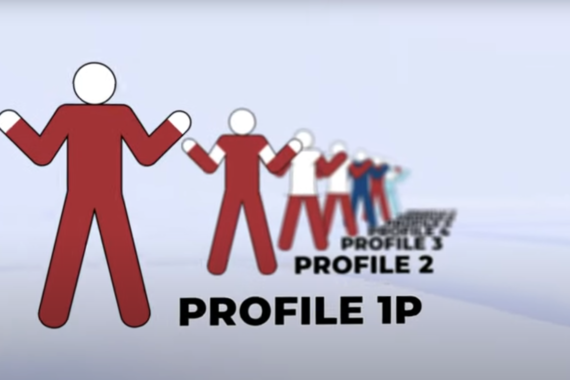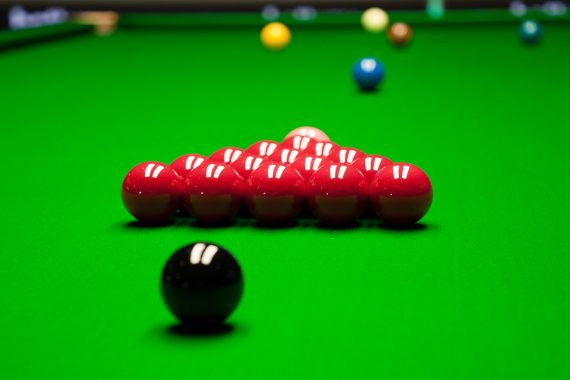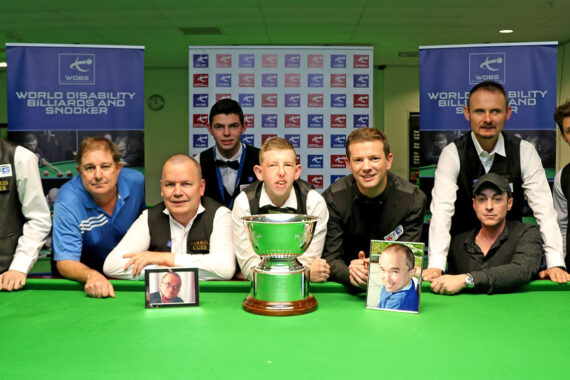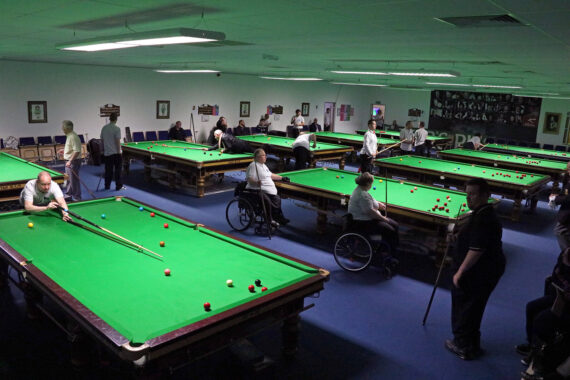WDBS Classification Guide: Group Six
Today we resume our journey through the World Disability Billiards and Snooker classification system, used to determine which players are eligible to play in each of our events.
This week we look at the Group 6 profile, which includes players who have a learning disability.
Check out our group explanations so far:
WDBS Disability Classification
The WDBS classification system comprises 36 individual profiles, which have then been allocated to eight groups, used to categorise events.
The system has been taken from the English Federation of Disability Sport (EFDS) profile toolkit and revised to suit snooker and billiards.
Group 6 (profile 39)
Profile 39: Intellectual impairment
Group 6 includes players with an intellectual impairment as defined under profile 39 of the classification system.
Under this profile, a learning disability is defined as a Global IQ 75 or someone who may need assistance with some activities of daily living (ADL).
 At a National level, disability does not usually include specific learning difficulties such as Dyslexia and some forms of Autism. During the early stages of development WDBS has provided competition that is inclusive of Autism and severe Dyslexia alongside those fitting the criteria above. However, it may be necessary to reflect the distinction between learning disabilties and difficulties in future events in order to align group 6 with the usual definition under profile 39 of the classification system. Participants also need to be aware that should they enter external competitions either endorsed or nominated by WDBS they will have to match criteria set by those governing that event.
At a National level, disability does not usually include specific learning difficulties such as Dyslexia and some forms of Autism. During the early stages of development WDBS has provided competition that is inclusive of Autism and severe Dyslexia alongside those fitting the criteria above. However, it may be necessary to reflect the distinction between learning disabilties and difficulties in future events in order to align group 6 with the usual definition under profile 39 of the classification system. Participants also need to be aware that should they enter external competitions either endorsed or nominated by WDBS they will have to match criteria set by those governing that event.
Player view
To date the WDBS has held two Group 6 events, firstly at the Woking Open in May 2016 where David Barrett defeated Richard Yendle to claim the inaugural title. It would be second time lucky for Yendle however, as he took the gold medal at the Open Disability Snooker Championship in Gloucester with a win against David Mac earlier this month.
During the event, he told us how he first became involved with snooker and how he uses the coaching that he has received from WDBS director Bob Hill not only to improve his own game, but also that of one of his friends:
“I got into snooker by playing with my dad on a Thursday,” said Yendle. “I began playing at the Keynsham Snooker Centre, before moving to Snooker City in Bristol. I find it really enjoyable to play with my dad.
“Bob [Hill] is a good coach and he teaches us all of the skills and techniques that we need to play snooker. Whenever Bob teaches us on a Friday, I meet with my friend afterwards at Snooker City and I try to help him to become better at snooker by practising what I have learned through Bob’s coaching.”
Earlier this year we spoke to Hill as part of Learning Disability Week 2016 and he told us that snooker is an ideal sport for players with learning disabilities.
“It involves an intuitive set of ideas, such as potting balls and taking it in turns,” said Hill. “It’s interactive, giving players the chance to socialise while taking part; and it requires focus while not being over-complicated.
“Coaching players with learning disabilities is the best part of the coaching I do because the players involved gain the most rewards from it. It’s not only about improving skill, but about players gaining confidence and social skills. One player in my group barely spoke during his first three sessions, but he has gradually made friends. He recently competed in the Woking Open tournament and thoroughly enjoyed it.”
Later this week we will take a look at the final two WDBS classification groups, including players with visual and hearing disabilities.



